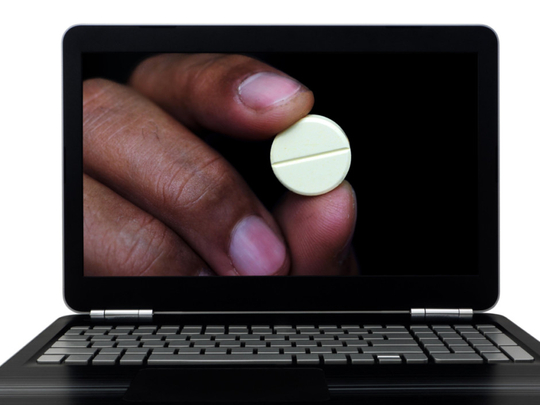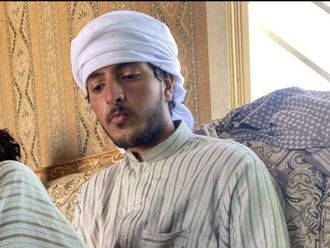
Dubai: Dubai Police have blocked 18 websites so far this year in the continuing push to curb online purchases of illegal drugs from outside the UAE.
Brigadier Eid Thani Hareb, director of the Anti-Narcotics Department, told the 13th Hemaya International Forum and Exhibition, a gathering of law enforcement officials, on Tuesday that constant monitoring of the internet is keeping some illicit drugs out of the country.
The theme of the forum is ‘Foreseeing the Future of the Global Combat of Narcotic Drugs and Psychotropic Substances: Predictions, Preparations and Prevention Strategies for 2030’.
Brig Hareb said that police regularly monitor suspicious websites that sell drugs and pointed out that tip-offs also assisted in arresting a number of drug traffickers throughout the year.
Dubai Police established a department to monitor the sites for trafficking in drugs in the UAE in 2012. Many websites have been blocked, thanks to electronic patrols.
“We blocked 18 websites involved in trafficking in and sale of drugs this year. All the sites were based outside the country. Last year, we blocked 60 websites, an increase from 40 websites blocked in 2016,” Brig Hareb said.
He said that the electronic patrols search the internet every day to detect the suspicious sites and then coordinate with the Telecommunications Regulatory Authority to block them.
“The drug dealers use the internet to sell drugs by giving a nickname or different name to the drugs. It is a big challenge for us. We have caught some suspects and drug addicts buying the drugs online,” Brig Hareb said.
A new and rising challenge, he said, is the growing number of drug dealers creating personal accounts for trafficking in drugs.
“Social media is a wide and big platform as many people can easily make accounts. Despite that, we are focusing on them to block their accounts to prevent the spread of drugs in the UAE,” he added.
In 2017, Dubai witnessed a 121 per cent increase in the number of drug-related arrests, from 90 suspects in 2016 to 199 suspects.
Brigadier Hareb said that parents should monitor their children, especially teenagers. In one instance last year, police found out that a 14-year-old had become hooked on to Tramadol because he was unsupervised.
“They didn’t even notice that their son had become a drug addict until we alerted them. He gave a pill to one of his schoolmates thinking it is a medicine for headache and his friend informed the principal who informed us.
“If a parent notices his son has become gloomy, stay alone and is angry all the time, then these are signs of drug addiction and parents must inform police to help them,” Brig Hareb said.
Those who seek addiction treatment in the UAE won’t be prosecuted, according to Article 43 of the Anti-Narcotics Law.
Family members can even come forward on someone’s behalf, and while those who use illegal drugs used to face a minimum of four years’ imprisonment in the UAE, they now — if they fit the criteria — will be given treatment instead.
The article is all encompassing and applies to all persons of all nationalities residing in the UAE.
Forum recommendations
The forum suggested tougher prison conditions for convicts in drug cases such as not allowing them to have family visits during religious and national occasions.
The forum also called for the use of seized drug money from drug operations to finance addiction rehabilitation programmes.
Smart app
The Anti-Narcotic Department of Dubai Police is set to launch an application for smartphones to educate parents and individuals about drug addiction with advice on what they can do and video clips to spread awareness about drug abuse.












